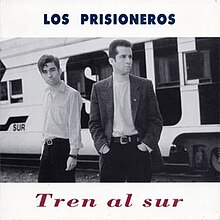
Mœnia is a Mexican electronic/synthpop/ambient group. Popular within the Latin club scene while simultaneously pioneering a darker, more experimental, more poetic side of Spanish-language electronica, Mœnia has had three top-20 hits. Mœnia is often considered one of the first successful experimental Mexican music composers and performers, finding commercial viability in a market normally dominated by Latin ballad crooners, teenage vocal groups and musical styles with more mass appeal like cumbia, reggaeton and ranchera. Mœnia is also popular in other parts of Latin America, including the Argentinian and Chilean music markets, where they have also charted. Some of their most recognized singles include "Estabas Ahí", "No Dices Más" and "Manto Estelar".
Chilean rock is rock music and its corresponding subgenres produced in Chile or by Chileans. Chilean rock lyrics are usually sung in Spanish so can be considered as part of rock en español, although they are sometimes sung in English as well.

Los Prisioneros was a Chilean rock band formed in San Miguel, Santiago, in 1982. Considered one of the most important Latin-American bands of all time, they've been evaluated as pioneers of Rock en español by Latin American media and musicians, and as the band with the strongest socio-political impact in Chile. The group would develop a new wave sound that would have its roots in British punk rock, in particular The Clash, and would incorporate rockabilly, reggae and ska influences, and later on synthpop, and would make themselves known for their controversial, witty and subversive lyricism that criticized the socio-economic structures, education and societal attitudes of dictatorship-era Chile and Latin America as a whole. This would cause their music to be banned by the Chilean mainstream media between 1985 and 1990, but their music would continue to spread there, aided by word of mouth and shared homemade cassette tapes.

Miranda! is an Argentine electropop band formed in Buenos Aires in 2001. Original band members include Alejandro Sergi, Juliana Gattas, Lolo Fuentes (guitar), Bruno de Vincenti (programming), and Nicolás Grimaldi (bass). It is currently a duo between Sergi and Gattas.

The 5th Annual Latin Grammy Awards were held on Wednesday, September 1, 2004, at the Shrine Auditorium in Los Angeles.
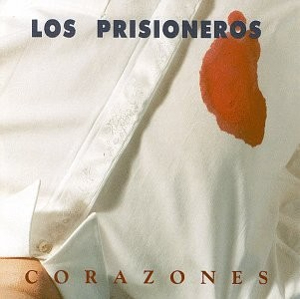
Corazones is the fourth studio album by the Chilean rock band Los Prisioneros, released in 1990. Produced by the Argentine Gustavo Santaolalla, in conjunction with Aníbal Kerpel on the EMI label, it was recorded, mixed and mastered in Los Angeles, California being the first album recorded outside of Chile. It was distributed overseas by the Capitol label.

Jorge Humberto González Ríos is a Chilean singer-songwriter and producer, best known for being the leader, vocalist, songwriter and bass player of the post-punk band Los Prisioneros, considered by some to be among the most important Latin American bands of all time.

Jorge González is the self-titled solo debut of former lead singer and songwriter of the Chilean band Los Prisioneros, recorded in 1992 and released in early 1993. It was produced by Gustavo Santaolalla with Aníbal Kerpel's collaboration. The 14 tracks featured in this album were written and composed by González.
Quiero Club is an experimental pop indie band from Monterrey, Mexico.

Los Ángeles Negros are a Chilean pop ballad band formed in San Carlos de Chile in 1968. The band's best-known line-up consisted of singer Germaín de la Fuente, guitarist Mario Gutiérrez, keyboardist Jorge González, bassist Miguel Ángel "Nano" Concha, and drummer Luis Ortiz. Their music is a blend of boleros, psychedelic funk and rock music, known as Balada rockmántica.

31 Minutos is the first soundtrack album of the Chilean television series 31 Minutos, released on July 8, 2003, under the label La Oreja. It mainly contains the soundtrack for the first season of the show.

Pateando piedras is the second studio album by the Chilean group Los Prisioneros. It was released on September 15, 1986 in cassette format in Chile and 12-inch vinyl in South America. It was the group's first album to be released by a multinational company. It sold five thousand copies in its advance sale, and reached ten thousand units sold in a short time. The album was preceded by the hit single, "Muevan las industrias", which featured the group drawing European techno influences from bands like Depeche Mode.

The 1985 Chilean telethon was the sixth version of the solidarity campaign conducted in Chile, which took place on 6 and 7 December 1985. The theme of this version was "The Miracle of All." The poster boy was Victor Munoz.
This list is a discography of Los Prisioneros.
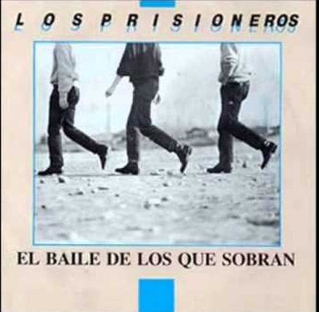
"El baile de los que sobran" is a single from the album Pateando piedras by the Chilean rock/pop band Los Prisioneros. It was considered by the National Library of Chile as one of the most emblematic of Chilean popular music of the 80s.
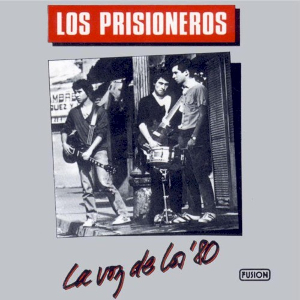
La voz de los '80 is the debut studio album by the Chilean band Los Prisioneros, released independently under the Fusion label on December 13, 1984. Produced by leader, vocalist, and songwriter Jorge González, who credited it to the name of the band. A thousand copies were released in cassette format at its launch, today these cassettes are considered cult objects of Chilean rock. In 1985, Los Prisioneros signed a contract with EMI Odeón Chilena, who re-issuedLa voz de los '80 nationally and with Latin American projection that year, managing to sell around 100,000 copies in Chile.

Pedro Subercaseaux García de la Huerta, better known by his stage name Pedropiedra, is a Chilean musician and composer. In addition to his solo career including five studio albums, he has also served as drummer for Jorge González' and 31 minutos' bands, as well as being member of several other bands such as CHC (2001-2009) and the superband Pillanes since 2018 as a multi-instrumentalist.
Aníbal Kerpel is an Argentine producer, engineer and mixer. Member of the progressive rock band Crucis, he began a successful career as a producer after the split of the band, working with artists such as Los Prisioneros, Café Tacvba, Divididos, Molotov, Gustavo Santaolalla, Bersuit Vergarabat, Juanes and Árbol, among others. During his career he has received a Grammy Award and over ten Latin Grammy Awards.
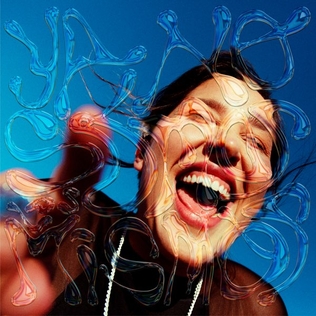
Ya No Somos Los Mismos is the third studio album by Colombian singer and songwriter Elsa y Elmar, released on April 28, 2022, through Sony Music Mexico. It was produced by Elsa y Elmar herself, alongside Julián Bernal and Nico Cotton, with Alizzz, Malay, Eduardo Cabra and Manuel Lara also having production credits in some tracks. Colombian salsa singer Joe Arroyo makes a posthumous appearance in the album as a featured artist.
